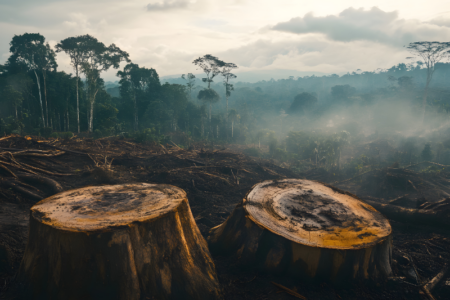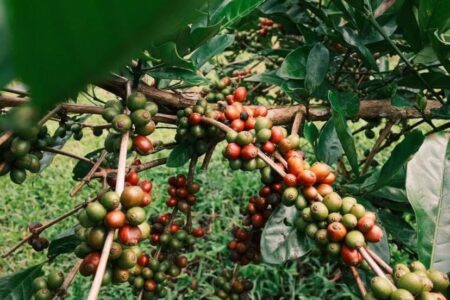Coffee grown from Tchibo’s Tanzania Coffee Club is now available

Students on a farm. Image: Tchibo
Tchibo is offering coffee from the sustainability project “Tanzania Coffee Club,” the special rarity “Kahawa Skuli,” for sale for the first time. In the so-called Coffee Clubs, pupils learn methods for sustainable coffee cultivation as part of school clubs. In addition to the theory, demo plots are also available at the participating schools. The junior farmers can apply what they have learned there directly at home: On their parents’ plots, they cultivate 30 to 50 coffee plants under their own responsibility.
The Coffee Clubs project is carried out together with a partner in the regions of Mbeya and Mbozi in Tanzania. Martha Kimboi coordinates the now seven coffee clubs:
“We were expecting 50 young people per school – currently there are almost 700 who take part in the coffee clubs in total. I am incredibly proud to be able to train and promote what may be the next generation of coffee farmers!” Martha Kimboi, project manager, Tanzania Coffee Clubs, commented.
Making coffee cultivation more sustainable
In Tanzania’s coffee-growing regions, it is common for children to take over their parents’ coffee farms – often due to a lack of other work alternatives. The farms are run for generations and the knowledge is passed on from generation to generation without further developing the cultivation techniques. At the same time, unsustainable coffee cultivation is not lucrative for farmers in the long run.
This is where the Coffee Club project comes in and focuses on sustainable coffee cultivation in order to secure coffee cultivation in the regions in the future. For example, the young farmers learn what natural fertilisers are available, how to best protect water and soil, and which sales channels are suitable for sustainable coffee.
The coffee yield from the school clubs has grown steadily since the beginning of the project. Now Tchibo has been able to purchase the coffee from the coffee clubs and produce the special rarity “Kahawa Skuli” for the first time. The sale of coffee means an additional source of income for the young farmers, for example for new school books.
“The young people are incredibly proud to be part of the project. They’d love to start right away and plant as many trees as they can, as they now see how they’re making a profit by harvesting their own coffee,” said Martha Kimboi.
The rarity “Kahawa Skuli” tastes like blackberry and dark chocolate and will be available at a price of €9.99 per 500 g whole bean.
For more informaiton, visit: tchibo.com.



